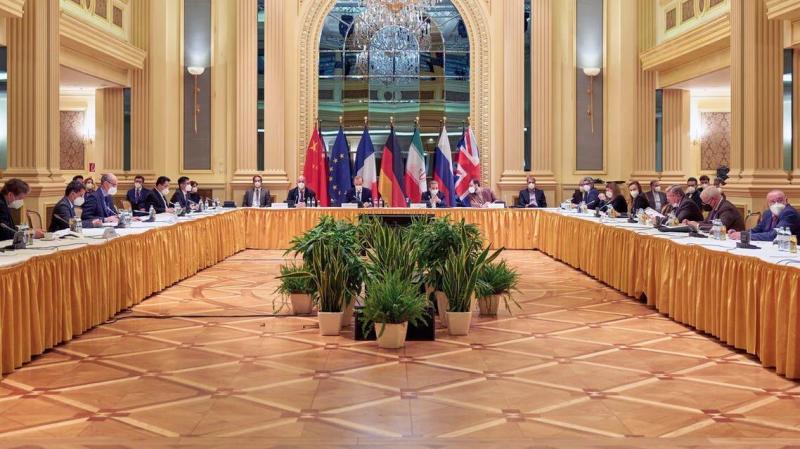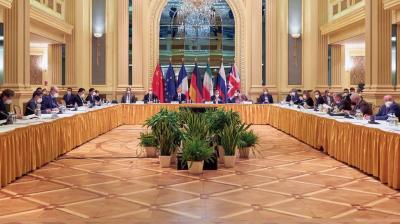Latest news from the fourth round of negotiations in Vienna on Saturday indicates that talks between the American and Iranian sides have reached critical and contentious points. Iranian Foreign Minister Mohammad Javad Zarif stated that the responsibility for returning to the nuclear agreement lies with Washington, not Tehran. While the United States insists on dismantling centrifuges as a key condition for lifting sanctions, hardliners in Tehran threaten to erase the contents of the agency's surveillance cameras if an agreement is not reached by the end of May.
Abbas Araqchi, Iran's chief negotiator, mentioned that the country may consider expanding cooperation with the International Atomic Energy Agency (IAEA) regarding extending inspection operations at its nuclear sites. In an interview with Japan's NHK network in Vienna on Friday, Araqchi expressed that Iran hopes to make sufficient progress so that an extension will not be necessary, but if needed, Iran will consider extending at an appropriate time.
Iran threatens to terminate its cooperation with the IAEA regarding nuclear inspections if no progress is made in discussions about lifting U.S. sanctions and other related issues by late May. Reports from Vienna suggest that the American side in the negotiations insists on dismantling all advanced centrifuges and selling them outside Iran as a condition for reaching a new nuclear agreement with Tehran in exchange for lifting most sanctions.
Enrique Mora, the EU coordinator for the Vienna negotiations, stated that he hopes this round will be the last of the talks, but there are still obstacles. On another front, Mojtaba Zonnour, head of the Iranian Parliament's national security committee, threatened on Saturday that if negotiations continue to be futile without result, Tehran would shut down the IAEA's cameras monitoring Iranian nuclear facilities. He added, "If negotiations fail to yield a result by May 20, the camera contents will be destroyed, and they will be closed."
It is noted that in response to the assassination of Mohsen Fakhrizadeh, the head of the military research section of Iran’s nuclear program, the Iranian parliament passed a "Strategic Law to Lift Sanctions" last December, mandating the Iranian government to suspend the implementation of the Additional Protocol while preventing IAEA inspectors from accessing nuclear facilities. However, following the visit of IAEA Director General Rafael Grossi to Iran in February, it was agreed to postpone the implementation of this law for three months to facilitate negotiations with the United States.
According to the conditions set by Iranian Supreme Leader Ali Khamenei for the talks, negotiations should not be prolonged and all U.S. sanctions must be lifted in one go. Nevertheless, more than a month has passed since the start of this round of negotiations, and all parties now state that the negotiations will be long and complicated.




